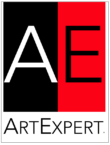ArtExpert Network offer you best opportunities even in times of crisis.
Investing in art offers a distinct opportunity within the realm of asset management. Unlike many conventional forms of investment, such as real estate or stocks, which can be susceptible to a myriad of external factors leading to depreciation, art often demonstrates a propensity to appreciate in value over time. While no investment is entirely immune to risk, the art market tends to exhibit a degree of resilience, with fewer variables impacting its value compared to other asset classes.
Art's intrinsic value appears to be less contingent on external influences and more rooted in its enduring appeal and cultural significance. While certain factors can influence the value of art, such as shifts in taste or market trends, the core attributes that underpin its worth often transcend temporal fluctuations and remain relatively stable.
Given these characteristics, some individuals choose to engage in art investment as a supplementary pursuit, while others commit significant resources to make it a primary focus. However, it's worth noting that achieving substantial profits and liquidity in the art market typically requires a considerable capital outlay, making it challenging to rely solely on art investment as a primary source of income without significant financial resources.
But don't care: ArtExpert is able to give you personal advise for New Art Investment.

The wonderful world of joy and investment.
Investing in modern and contemporary global art represents a dynamic and potentially lucrative avenue within the broader art market. With globalization and the proliferation of digital platforms, access to a diverse range of artworks from around the world has never been easier. Here are some key considerations for those interested in exploring art investment in this context:
- Diversification: Modern and contemporary global art encompasses a vast array of styles, mediums, and cultural influences. Diversifying your art portfolio across different regions, genres, and artists can help mitigate risks and capitalize on emerging trends.
- Market Trends: Stay informed about market trends and developments in the global art scene. Keep an eye on major art fairs, exhibitions, and auctions worldwide to identify emerging artists, rising stars, and shifts in demand.
- Due Diligence: Conduct thorough research on artists, galleries, and artworks before making investment decisions. Consider factors such as an artist's reputation, exhibition history, critical acclaim, and market demand for their work.
- Long-Term Perspective: Art investment often requires a long-term perspective. While some artworks may experience rapid appreciation in value, building a successful art portfolio typically involves patience and a willingness to hold onto investments for extended periods.
- Expert Advice: Seek guidance from art advisors, dealers, and consultants with expertise in modern and contemporary global art. They can provide valuable insights, help navigate the complexities of the art market, and assist in sourcing high-quality artworks.
- Authentication and Provenance: Verify the authenticity and provenance of artworks before making purchases. Ensure that artworks come with proper documentation, including certificates of authenticity, exhibition history, and provenance records tracing their ownership history.
- Storage and Conservation: Properly store and maintain artworks to preserve their value over time. Invest in climate-controlled storage facilities and engage professional conservators when necessary to ensure the long-term preservation of your art collection.
- Legal and Tax Considerations: Familiarize yourself with legal and tax regulations governing art ownership and transactions in your jurisdiction. Consult with legal and financial experts to address any legal, tax, or estate planning implications associated with art investment.
By approaching art investment in modern and contemporary global art with careful consideration and strategic planning, investors can potentially achieve both financial returns and cultural enrichment through their art holdings.
ArtExpert - the independent network with experience for over 40 years:
Knowledgeable and trustworthy advice and representation
When seeking objective advice and representation in art investment, it's crucial to find professionals with in-depth knowledge of the art market and no conflicts of interest. Here are some recommendations for securing trustworthy guidance:
- Art Advisors: Look for independent art advisors or advisory firms with no direct ties to galleries or art dealers. They can assist in developing a tailored investment strategy based on your financial goals, risk tolerance, and aesthetic preferences.
- Reputation and Experience: Research the reputation and experience of potential art advisors and representatives. Seek references, client reviews, and case studies to ensure they have a proven track record and expertise in the art market.
- Transparency and Independence: Ensure that the art advisor or representative is transparent about their fee structure, commissions, and potential conflicts of interest. Choose professionals who are independent and act solely in the best interest of their clients.
- Network and Resources: Consider the advisor's or representative's network and resources. Ideally, they should have access to a broad network of galleries, auction houses, collectors, and experts to assist in sourcing high-quality artworks and facilitating transactions.
- Expertise and Market Knowledge: Select advisors with expertise in various art genres, artists, and market segments. They should be capable of conducting thorough analyses and evaluations of artworks and guiding you in identifying investment opportunities.
- Clear Communication and Customer Service: Seek art advisors or representatives who offer clear communication and excellent customer service. They should be able to explain complex concepts clearly and support you throughout the investment process.
- Ethical Standards: Ensure that the art advisor or representative adheres to ethical standards and best practices. They should prioritize the interests of their clients and act ethically and responsibly.
By following these guidelines and conducting careful research, you can find a trustworthy and competent art advisor or representative to assist you in your art investments.
